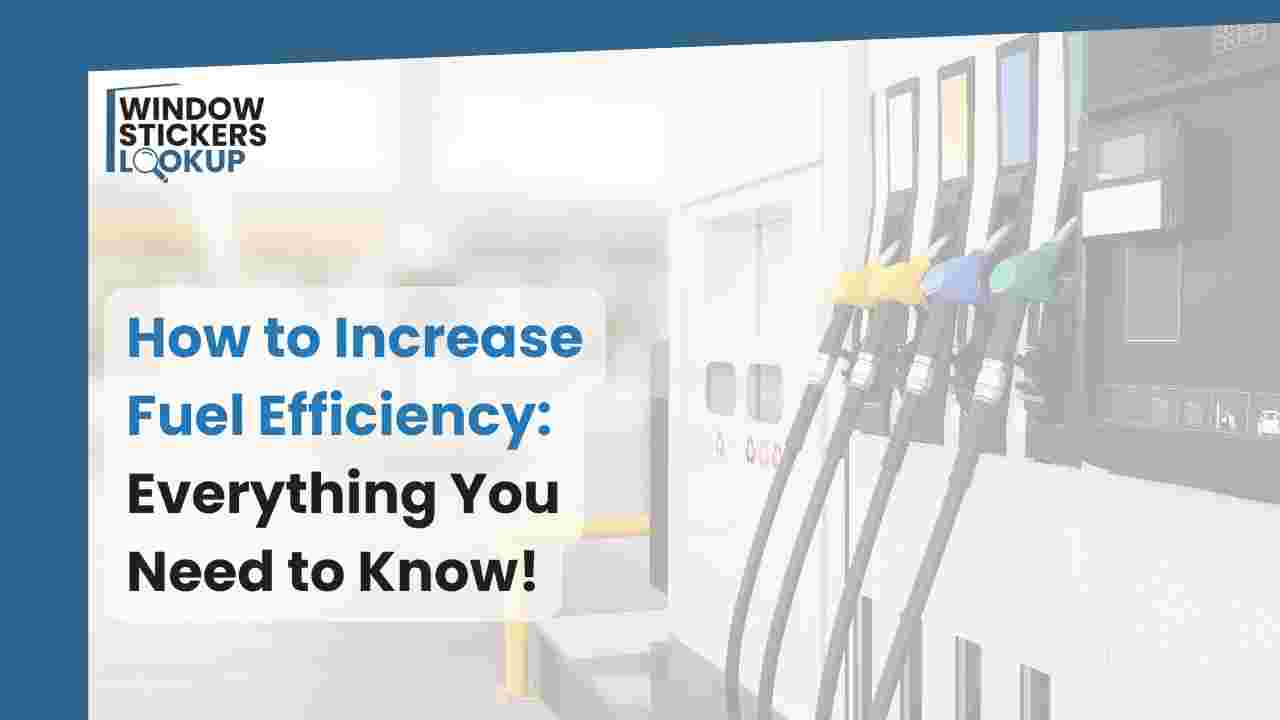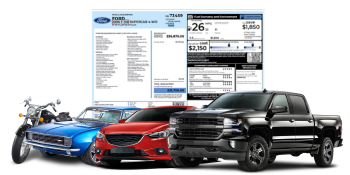Fuel efficiency refers to how your vehicle utilizes gas. In other words, it measures how much distance you will cover on one gallon of fuel.
For instance, if your car goes 30 miles to the gallon, which is the standard form of fuel efficiency measurement, you can go 30 miles before having to top up again. Glancing at a car window sticker can help verify the miles per gallon (MPG) for city, highway, and combined (city/highway).
The higher your MPG, the more efficient your car will be. This, in turn, allows you to save money by not spending that much on gas. Improvement in fuel efficiency holds down fuel prices while helping reduce carbon emissions into the atmosphere.
So, if you want to stretch your buck at the pump and go green, this guide will teach you how to increase fuel efficiency in your vehicle, saving you money while reducing your carbon footprint.
RELATED: Fuel Efficiency in Cars: Definition and Importance
Ways to Improve Gas Mileage
Improving your car’s gas mileage is a lot easier than you think! Here are effective ways to get the most out of every drop of fuel.
1. Get a Tune-Up
Just like your routine check-up to stay healthy, your car needs tune-ups, too! Periodic tune-ups ensure a smooth and efficient run. A tune-up allows a mechanic to inspect the key elements of your car, such as the engine, oil, and air filter. A well-tuned car engine burns fuel more efficiently, which directly translates to more miles per buck.
2. Don’t Speed
We all love the open road, but speeding is a leading cause of fuel wastage. Did you know that for every 5 miles per hour, you drive over 50 mph, and it’s like paying an extra 20 cents per gallon for gas?
So stay within the speed limit and drive with the most consistency possible. Not only will this improve fuel economy, but you’ll also be way safer on the highway!
3. Use Fuel Additives
Fuel additives are unlike any other chemical in the world because you put them into the gas tank with one thing in mind: cleaning your engine and optimizing it for performance. They can clean all of the dirt and gunk inside your engine, allowing it to operate much better.
However, ensure that you select a fuel additive which is designed for your vehicle’s needs. Always read the instructions on the label.
4. Watch Your RPMs
RPM stands for “Revolutions Per Minute,” an abbreviation that denotes how fast your vehicle’s engine is working. Keeping your RPMs low can greatly improve fuel efficiency.
In a manual car, change gears as smoothly as possible and avoid high RPMs. In an automatic, drive easy and let the car do all the work.
5. Keep Moving
It might feel harmless, but idling wastes loads of fuel. If your car is stopped but running, maybe you’re waiting at a red light or sitting in the drive-thru—it’s using gas and getting you nowhere!
If you are going to be parked for more than 30 seconds, shut off your engine. Your wallet will appreciate it later!
6. Use Cruise Control
Are you cruising down the highway? Use cruise control! This keeps your speed constant. The steadier the speeds, the more efficiently the engine works. Cruise control can be tricky during heavy traffic or on windy roads where you need to work the speed more frequently.
7. Check Your Tire Pressure
Underinflated tires are stealth fuel guzzlers! When your tires are flat or low, your car must work harder, which not only burns more gas but also impacts car safety.
Get into a routine of checking your tire pressure at least once a month for both fuel efficiency and car safety. Most gas stations have free air pumps, and it only takes a few minutes.
8. Lighten Your Load
Extra weight is also bad for fuel efficiency. If you don’t need all that stuff in the trunk or backseat, it’s time to clean out! The heavier your car is, the more fuel it requires to move. Try keeping only what you need inside your car. This will not only save fuel but also give you extra space!
9. Optimize Your Route
Being able to plan your trips will help you save gas, too. Using a GPS or other map app to find the quickest route can save you time and fuel.
Try to avoid areas with heavy traffic and always opt for routes with fewer stops. This will keep your engine running smoothly and get you to your destination quickly.
10. Maintain Proper Vehicle Weight
If you’re looking to buy a new car, consider choosing one that’s built to conserve fuel. Lighter vehicles tend to consume less fuel, so keep that in mind when you’re car hunting.
READ ALSO: What is a Car Rebate? Full Guide to Rebates on Cars
When comparing various cars, check their window stickers. A window sticker lookup by VIN provides you with the fuel efficiency information you need to decide which one best suits your needs and helps you save money on fuel.
Conclusion
There are relatively painless ways to increase your fuel efficiency. Following these simple tips will save gas money and keep your car running better. Always perform periodic tune-ups, avoid unsafe speeds, monitor RPMs, keep your tires properly inflated, and reduce payload. If you’re interested in buying a used car or new car, consider checking out window stickers that can help you compare the fuel efficiency of different cars.
If you are a dealer and wish to take your dealership to the next level, leverage our dealer window sticker to boost sales and customers’ trust. Potential customers can simply take a glance to get well-detailed information about the car of interest.









